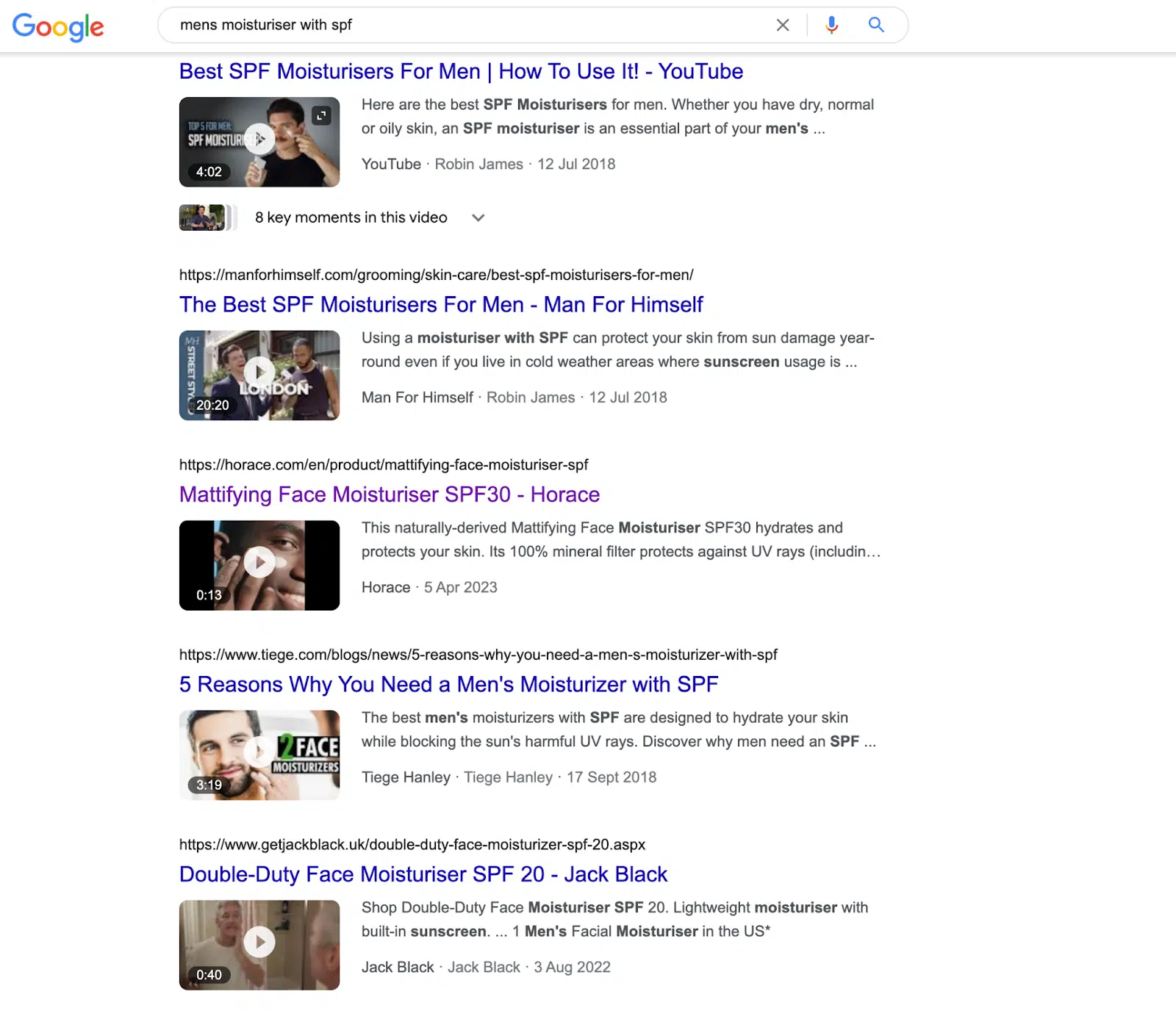Embracing the future of organic search optimization
[ad_1]
Every week someone tells me that SEO is dead.
This week, I was being lectured online by a young man with a start-up.
First came the humble brag about how their business turned over $20 million in a year with PPC ads.
And this combo was finished with a vicious knockout statement about how AI will kill SEO.
In today’s article, I will tell you why he’s right. But what’s coming is much bigger.
OSO: Organic search optimization (it’s bigger and badder than SEO)
As I reeled back from the savage online salvo of critique, I did what any SEO on the receiving end does. Place the guy’s domain name into Ahrefs.
The result of $20 million in turnover?
A mere 2,000 brand searches a month. That’s not a brand; that’s a few people checking you’re legit after seeing your ads on TikTok.
To be fair, he is right. And he’s not the only one to think that.
Since Google told everyone that Search Generative Experience (SGE) was coming, even SEO consultants have been crying in their tea, fearing that traffic will be destroyed.
And for good reason, there are likely to be fewer people clicking through to websites thanks to AI.
But there is no need to cry into the tea mug you snagged at your recent SEO seminar.
SGE is going to birth a new and far larger beast.
Organic search optimization (OSO).
The shifting perspective of search
It’s time we revisit some marketing 101.
Brands grow through acquiring more customers. That’s not a great shock, but they don’t grow through traffic and rankings.
And so, as SEOs, we need to think tactically about how people become customers.
In a nutshell, we need to make businesses easy to mind and find.
Translating this into SEO language, we must rank clients for their high purchase intent keywords. Rank them for category research search terms (think questions and comparison style search).
And remember, we can use informational search to reach people not in the market and try to get their email addresses.
And that’s pretty much SEO.
How you do all that can be debated, but that’s the results that brands want.
So, how does that change with SGE/AI?
Your job is to build nets… giant nets
The role of SEO is to capture and nurture demand. Minimal demand generation can be done via SEO.
But search is evolving. We now have Google about to add perspectives that will rank TikTok videos and YouTube shorts.
We have the ever-improving discovery and news feeds, and of course, we’ll have SGE.
Search isn’t dying, it’s evolving.
We’re now having to think about multi-channel SEO.
We’re now having to think beyond Google’s first SERP.
We must now build big nets to capture the demand marketing teams create.
And even better, capture the demand that other marketing teams create, which is a surprising benefit of SEO.
Reach, great big reach (and why you’ll get paid more)
It’s OK to spit your dummy out as an SEO and tell the world you won’t go to YouTube and do SEO there.
Or avoid TikTok and say, “No…that’s not for me.”
But if that’s your mentality, you won’t help build brands online because you’ll be unable to give general tactical advice.
No one says you must be behind the camera or doing the videos themselves.
Nor do you need to tell people what to write to try and be featured in the discovery feed.
But you must expand your skill set to exist in the ever-evolving world of organic search.
“Perspectives” SEO is going to be a huge growth opportunity.
In practical terms, your work is now a lot sexier.
Finally, you get invites to the social team’s events, where you’ll ask them to create videos for you.
It’s going from ordering written content to short videos, long videos, PR and even thought leadership/ news content.
Yes, SEO is going to get a lot bigger.
Yes, SEO will help businesses to capture more demand.
And yes, this will help SEO become a bigger industry (which usually means you’ll get more pay).
The problem is SEO will need new leaders.
Get the daily newsletter search marketers rely on.
The social team won’t do keyword research
It’s tempting to think the social team will pick up the Perspectives tab. After all, Google will source the content from social platforms.
But they have enough work, creating demand-generating content and ads that get brands in the minds of their audience.
Asking them to start using search tools to figure out keywords that rank in Google, that’s got to be the SEOs job.
And learning how to optimize those videos for discovery on search engines…yep, that’s for you too.
You’ve spent years learning and mastering keyword research. You know how Google’s algorithms work.
As you’ve asked for written content for years, asking for shorts will be part of your role.
And for this reason, you’ll have to become an omnichannel SEO.
Omnichannel SEO is why organic search optimization seems a far more accurate job title.
But don’t change your job title… just yet
My last role was called “head of organic.” Today, I’m a director of SEO.
Essentially, both were SEO.
SEO is a name that has been around for a long time, and it’s our category.
While the focus will shift to use thinking about organic search across platforms, the name will be hard to alter from SEO.
After all, we are still talking about search engine optimization.
So, OSO is more of a mindset.
It’s a growth mindset.
The thing is, no one is going to give us this extra market share.
SEOs need to ask for this responsibility.
We must become excited about the vast potential to rank across search, not just in the first SERP.
SGE, Discovery, Perspectives, News, YouTube, TikTok, Reels, Watch.
The list will grow, and the list will expand.
Organic search is growing.
And organic search specialists will thrive…but only if you choose to.
How to start your organic search optimization career
This has been a preachy article. I don’t apologize for that. We need to grow as a sector.
But I want people to leave with practical knowledge.
If you’re interested in meeting this demand head on, you must boost your skills.
To start, head to search and explore the tabs.

Press the tabs, and you’ll see what comes up.

Explore the broad results and learn how this content is ranking and why it’s ranking.

Now, you’ll find some crossover. Some of the content that ranks in the news feed ranks on the “All” SERP.

Some content that ranks organically in the SERP also grabs the first People also ask segment.
Now, head to TikTok and do the same searches.

What comes up for the searches?
Do they have a large following? A good video? Are they using text in their videos?
And repeat this with YouTube.
Not only are you going to see opportunity.
You’ll start to expand your SEO skillset.
And now, I hope you’re getting a little more excited about the power of organic search optimization.
The potential is amazing.
AI isn’t killing SEO; it’s making it more powerful.
Think width of search, not depth.
Opinions expressed in this article are those of the guest author and not necessarily Search Engine Land. Staff authors are listed here.
[ad_2]
Source link






0 Comments